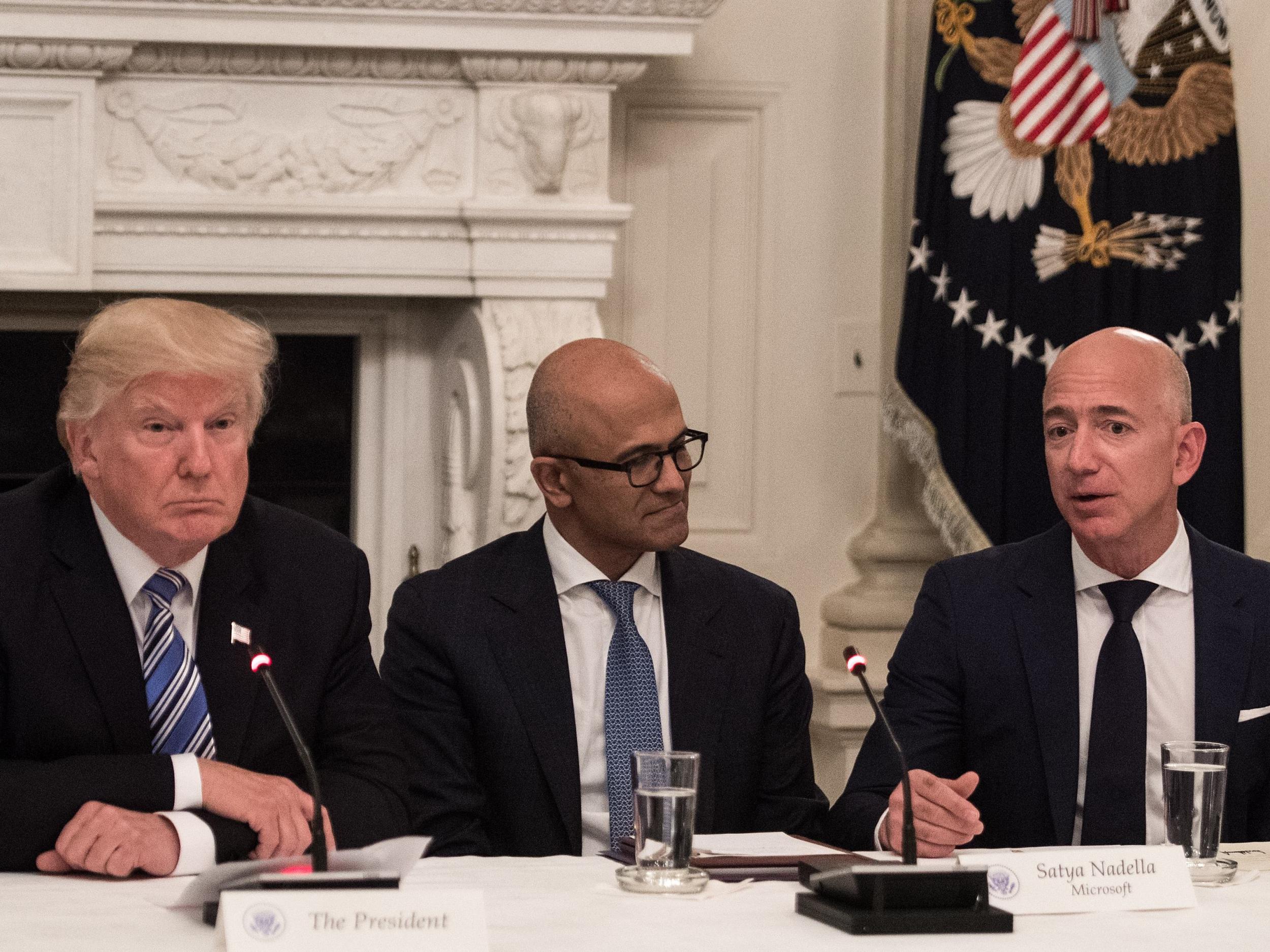War cloud: Why is the US military building a vast AI system and how will it change the battlefield of the future?
Amazon and Microsoft are vying for a controversial 'war cloud' contract worth $10 billion

Your support helps us to tell the story
From reproductive rights to climate change to Big Tech, The Independent is on the ground when the story is developing. Whether it's investigating the financials of Elon Musk's pro-Trump PAC or producing our latest documentary, 'The A Word', which shines a light on the American women fighting for reproductive rights, we know how important it is to parse out the facts from the messaging.
At such a critical moment in US history, we need reporters on the ground. Your donation allows us to keep sending journalists to speak to both sides of the story.
The Independent is trusted by Americans across the entire political spectrum. And unlike many other quality news outlets, we choose not to lock Americans out of our reporting and analysis with paywalls. We believe quality journalism should be available to everyone, paid for by those who can afford it.
Your support makes all the difference.The Pentagon is set to award a $10bn "war cloud" contract to a technology company next month, with both Amazon and Microsoft competing for the chance to build a military-grade AI computing system.
The Joint Enterprise Defence Infrastructure (Jedi) plan faces a number of obstacles before the US defence department makes its decision next month, not least from within the companies' own work forces.
Microsoft employees published an open letter on Medium last year, pleading the tech giant to not bid on the Jedi contract. "Many Microsoft employees don't believe that what we build should be used for waging war," they wrote.
A legal dispute has also been initiated by Oracle, who lost out in an earlier round of the bidding process. Oracle claims that there is a conflict of interest because Amazon has a former US Defense Department official working for it.
But if it does ever get off the ground, both figuratively and literally, the war cloud could fundamentally change modern warfare forever.
What does a war cloud do?
The Jedi project would involve establishing a vast cloud computing system, whereby a network of remote servers hosted on the internet store and process data.
As war cloud would use these servers to store classified military data, while also providing the computing power to enable AI-based war planning.
"Cloud is a fundamental component of the global infrastructure that will empower the warfighter with data and is critical to maintaining our military's technological advantage," the Pentagon outlined in a 2018 strategy document.
"It emphasises mission and tactical edge needs along with the requirement to prepare for artificial intelligence while accounting for protection and efficiencies."
What technology will it use?
The war cloud will be similar to other cloud computing systems, in that it will host data and computer processors in remote data centres, far away from where they are actually used.

The fundamental difference is that the customer is the US military, and therefore both the scale and the security-levels will be huge.
This means it will likely use similar technology to that already used by Amazon Web Services or Microsoft Azure, though it will be completely separated from the regular internet through a series of firewalls.
How does it benefit soldiers?
The US military is betting its war cloud will significantly improve ground operations by giving combat forces direct access to incredibly powerful artificial intelligence computers that can help with battlefield strategy.
Soldiers will also have access to streams of classified information, which would be heavily encrypted to prevent it getting into enemy hands.
According to the Defense Department's strategy document, the project will replace the military's "disjointed and stove-piped information systems".
The Star Wars-inspired acronym may evoke sci-fi-style weapons, though in reality the war cloud will bolster the already highly-advanced technological capabilities of the US military.
Join our commenting forum
Join thought-provoking conversations, follow other Independent readers and see their replies
Comments